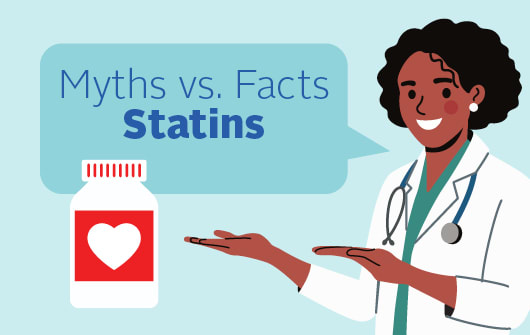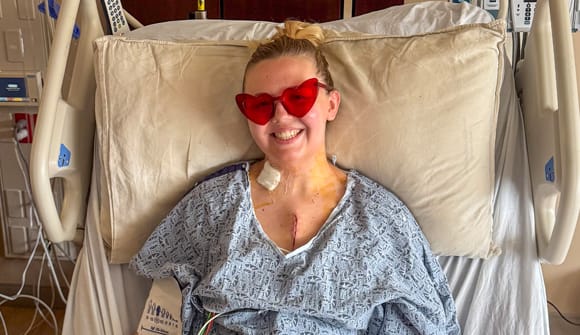Back to walking pain-free
Patient with PAD uses medically supervised exercise to ease symptoms without surgery.
Article Date:

Mobility for David Matthews once meant a walker with a seat on it. When navigating his way through the neighborhood supermarket, he opted for a public scooter.
Today, Matthews can walk on an incline unassisted for 30 minutes.
“That is one incredible improvement for me,” the 75-year-old retired engineer said. “It’s given me a positive outlook on life that I didn’t have before.”
Matthews suffers from heart disease and peripheral artery disease (PAD). The latter is caused by plaque build-up in the arteries entering a person’s arms and legs. The reduction in circulation means the blood flow into the limbs can’t keep up with demand when exercising. When PAD patients walk, even a short distance, they may feel debilitating pain or cramping in their feet, calves, thighs, hips or buttocks.
Matthews’s exercise physiologist became aware of his condition when he attempted to take part in the Baptist Heart Hospital Cardiac Rehabilitation Program. The pain in his legs was too intense for Matthews to walk as much as his physiologist wanted him to.
So, staff changed his exercise prescription to include PAD Supervised Exercise Therapy (SET). It’s a type of therapy that can dramatically improve quality of life, said Mary Condorodis, Cardiac and Pulmonary Rehab coordinator for Baptist Medical Center Jacksonville and Baptist Medical Center Nassau.
In the beginning Matthews could barely walk 50 feet. By the end of therapy, he was walking 2,000 steps.
“It’s amazing what he’s able to do,” Condorodis said. “I’ve had several patients who’ve used this protocol now who are walking further with less pain.”
People with PAD risk losing a limb due to lack of circulation. In severe cases, doctors recommend bypass surgery or inserting a stent to open the blocked artery.
But for intermittent symptoms—when the pain goes away with rest—supervised exercise therapy is now the recommended first step.
The therapy may help build collateral vessels, which operate like natural bypasses, to feed the muscles and decrease the pain, Condorodis said. For many, it’s a welcome alternative to surgery.
Matthews had battled heart disease since his mid-50s. An undiagnosed heart condition had nearly closed his main artery. It led to quadruple heart bypass surgery and early retirement. Over the next 20 years, Matthews would have five stents placed in arteries leading to his heart to open blockages. At a recent visit with his cardiologist, Matthews asked how he could take his health to a higher level.
“My thinking was, if I’m going to keep having these hospital treatments and then sit on the couch and become a couch potato, I’ll eventually expire,” he said.
His cardiologist told him he should get into a walking program. And lose some weight.
“I said, ‘How do I do that?’ And he said ‘You should exercise.’ But I can’t exercise. So it went around in a circle,” Matthews said.
People who come to the PAD Supervised Exercise Therapy program are usually deconditioned, Condorodis said. They are unlikely to be exercising on their own because it hurts too much.
“One reason to do an exercise program that’s supervised is so we can set the right intensity,” she said.
Patients enrolled in the PAD SET program will walk on a treadmill to engage pain symptoms. Therapists guide them through periods of alternating exercise and rest. That stretches patients’ tolerance, until they are walking farther and also, uphill.
Later this year, Baptist Health will launch independent PAD SET programs in each of its four adult hospitals.
Patients will participate in 30- to 60-minute sessions three times a week for 12 weeks.
The Center for Medicare and Medicaid Services began providing coverage for supervised exercise therapy for PAD patients last year.
To find out if you are a candidate for PAD Supervised Exercise Therapy, speak to your primary care provider, cardiologist or vascular surgeon. If you need a cardiovascular specialist to help you manage your PAD, visit Baptist Heart Specialists.



